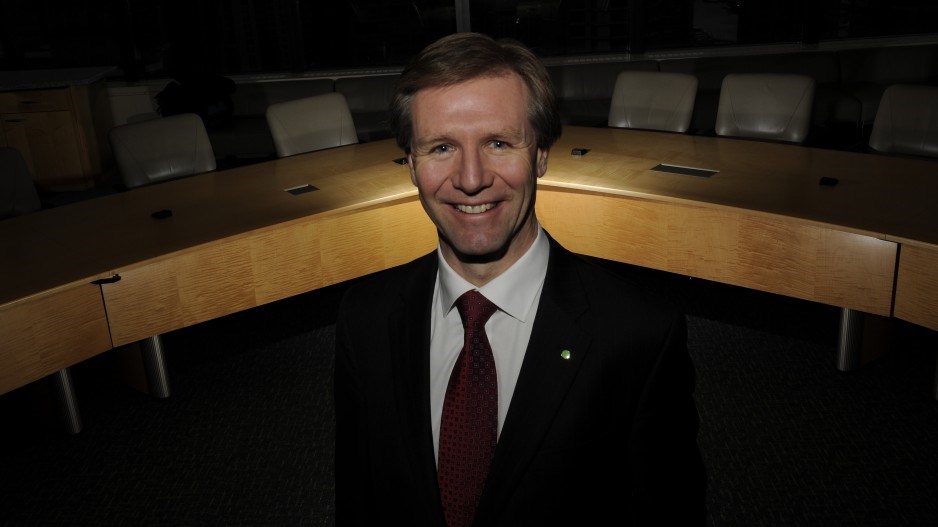Deloitte Canada chairman Glenn Ives knew he wanted to be a chartered accountant (CA) since he was 12 years old.
"I've always enjoyed accounting, to my wife's horror," he said. "I never got to the point where I didn't like it, so I just stayed with it."
Ives went through the University of Waterloo's CA program in the early 1980s. When it came time to study for the UFE, a multi-day final CA exam, Ives said he didn't learn all the technical material from starting at the beginning and working forward. Instead, he practised writing exam-style questions and then reviewed the answers.
The approach worked, and he wound up winning Ontario's UFE gold medal, a prestigious award presented to the student with the highest score on the exam.
"If I've only got time to do 80% of a job, I do the most important 80%," Ives said. "I don't start at the beginning and work my way sequentially through.
"That's what I do better than most, which is, I think, why I've been successful."
Before joining Deloitte in 1999, Ives worked for tax firm Coopers & Lybrand for four years and then spent a decade in the mining industry with TVX Gold and Vengold.
He has had four different careers at Deloitte, all of which allowed him to take advantage of the contacts he made in the mining industry. He progressed from audit partner to lead partner and then vice-chairman before he landed his current role as chairman.
One of the conditions he stipulated for his most recent promotion was that he stay in Vancouver, which means he spends a lot of time on planes flying back and forth to Toronto, where Deloitte Canada's head office is located.
"The business centre of Canada is moving westward," he said. "The provinces that are economically looking the most robust are B.C., Alberta, Saskatchewan and Manitoba, so it's very important from a Deloitte perspective that we have leaders based in the West."
As chairman, Ives said he has made it a priority to take advantage of the organization's partnership culture. He believes this can be accomplished by fostering team-building and empowering employees to make decisions on their own.
That approach, he said, provides his company with a competitive advantage and keeps both partners and clients happy.
"I've been told by business leaders that when a Deloitte team comes in to make a proposal, it's clear the partners enjoyed working together," he said.
Although the short-term outlook for the economy might contain some bumps, Ives is optimistic (he describes himself as a "glass is half full" guy) about the long-term outlook for Canada and abroad.
"I would say the world economy is nowhere near in as desperate shape as the press would have you believe."
This view extends to his company's growth prospects as it works toward being the most sought-after professional adviser firm in the country.
He points to the fact that Deloitte now rivals PwC, even though PwC was significantly bigger just five or six years ago.
"I would expect us to continue to outgrow our competitors on a percentage basis."
But the company hasn't been completely impervious to the recession. Ives said that 2008 and 2009 were tough years for professional practice in general, and that Deloitte's revenues dropped by "a percentage or two" in 2009, but the organization made it a priority to protect its 8,000 Canadian employees.
That meant everyone at Deloitte, particularly the partners, had to make sacrifices, which sometimes came in surprising forms. For example, switching from hot meals to sandwiches at meetings saved $3.5 million Canada-wide, enough to secure over 40 jobs.
"We made a conscious decision to protect our staffing and to keep our people employed so that when the recovery came, we'd be in a position to take advantage," Ives said. "That has paid huge dividends for us."
Deloitte's Martin Pow, who recently accepted a new position with the company to set up a branch in Mongolia, said Ives has been a mentor to him and is always there to support and encourage those who need it.
"Glenn, at the end of the day, inspires people if they listen and take the opportunity ... he has consistently been there by my side," said Pow.
Still, Ives isn't sure what the future holds for his career.
"I love mining and whatever I do I will stay connected to the mining industry in some form," he said. "I feel very good about where Deloitte's heading, and it wouldn't surprise me if I took another posting with Deloitte, perhaps overseas."
Ives said he works hard to balance his career with the time he spends with his wife Katherine and their four children. He added that people understand when he places a priority on important family commitments, and that "it may be awkward but it isn't end of the world" if work sometimes comes in second place.
"What I'm most proud of is that I've been able to do wonderful and exciting things in my business life, but my family is still absolutely the most important thing," he said. "If you prioritize that way, the rest becomes easy." •




